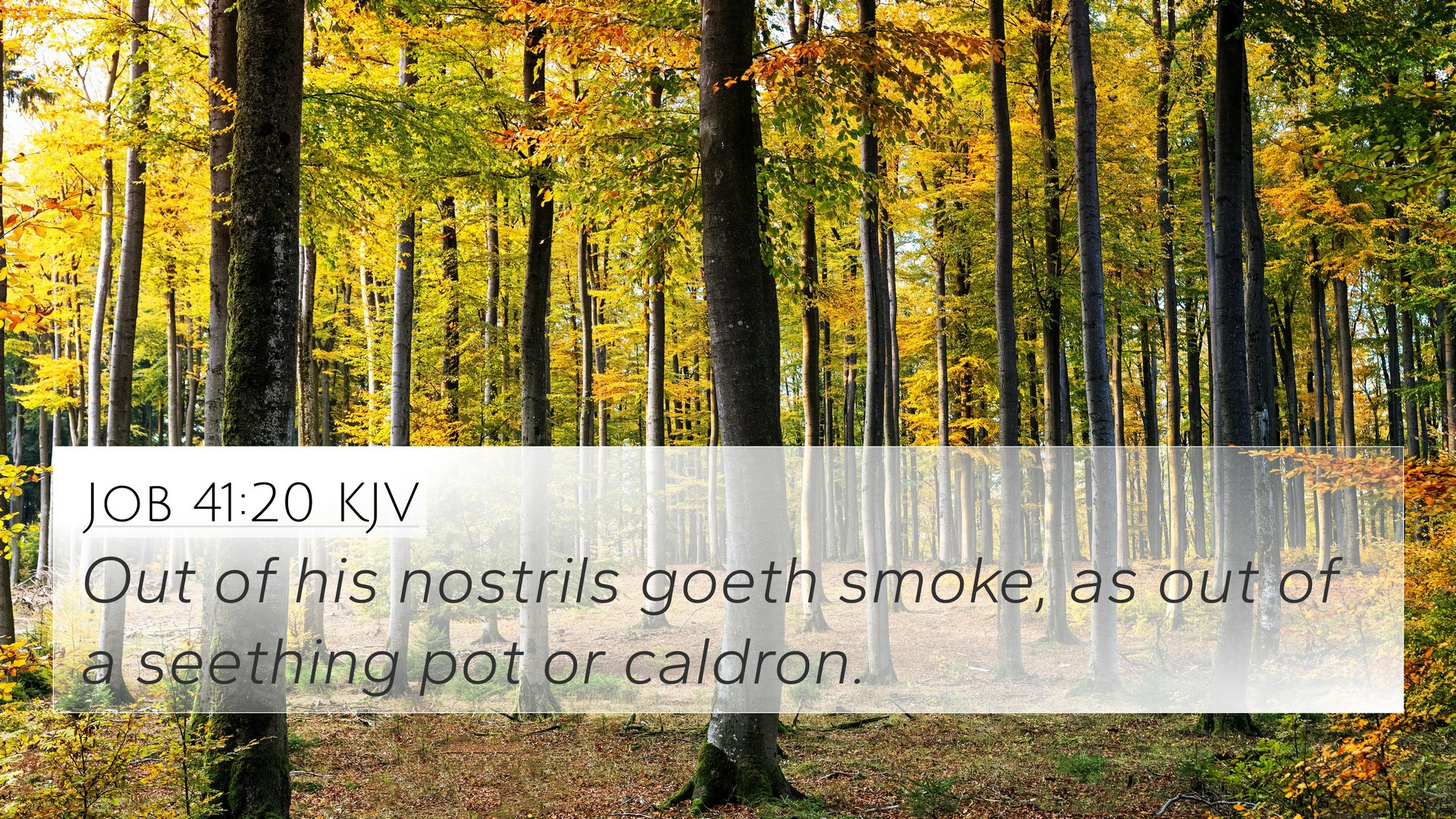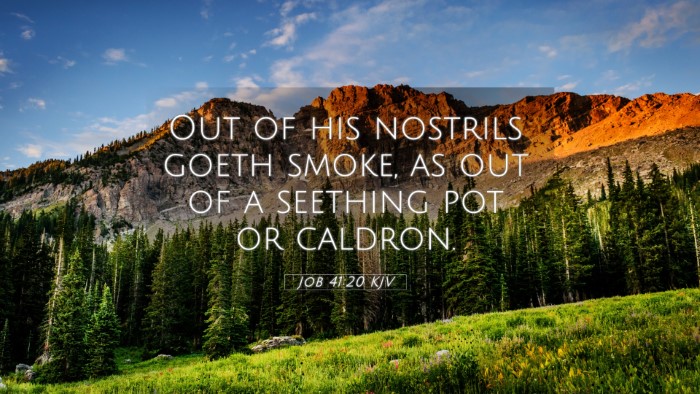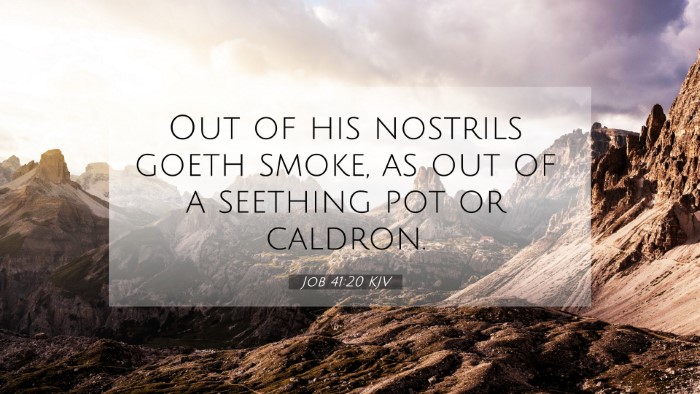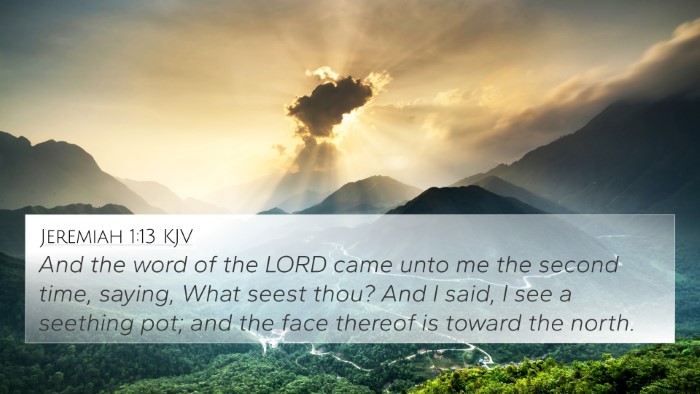Meaning and Analysis of Job 41:20
Job 41:20 states: “Out of his nostrils go smoke, as out of a seething pot or caldron.” This evocative imagery describes the fierce and majestic nature of the creature being discussed in this chapter, commonly understood to be a representation of the Leviathan or a powerful sea creature. The verse focuses on the immense strength and terror associated with this beast, emphasizing the idea that it is beyond the control of human beings.
Contextual Significance
The Book of Job is framed around the themes of suffering, divine justice, and the nature of God. Throughout this text, particularly in chapters 40 and 41, God speaks to Job about His creation, highlighting the wonders and mysteries of the natural world. The mention of such a formidable creature serves to remind Job (and the reader) of the greatness of God's creative power and the limitations of human understanding.
Commentary Insights
- Matthew Henry: In his commentary, Henry points out that this depiction of smoke and fire signifies danger and overwhelming power. The verse serves to illustrate God's sovereignty over all creation, as even this monster is still part of His dominion.
- Albert Barnes: Barnes emphasizes that the imagery used here forms a critical part of God's argument to Job, reinforcing the idea that the creation is complex and filled with wonders that far exceed human capabilities to tame or fully comprehend.
- Adam Clarke: Clarke sees the mention of the nostrils and smoke as indicative of rage and the ferocity of the creature, further symbolizing the chaotic elements of the world that are controlled by God alone, reminding Job of his position in the divine order.
Thematic Connections
This verse can be cross-referenced with several other biblical passages that enhance its thematic significance:
- Psalms 104:26: Discusses the Leviathan as a symbol of God’s creative power.
- Isaiah 27:1: Refers to God's judgment upon the Leviathan representing chaos.
- Revelation 13:1: Alludes to a beast rising from the sea, evoking images of power and chaos.
- Job 40:15: Introduces Behemoth, another creature representing God's might.
- Proverbs 8:29: Speaks to God’s sovereignty over creation, including natural chaos.
- Romans 8:19-21: Discusses creation's expectation of liberation from chaos and decay.
- Exodus 10:19: The imagery of smoke indicates divine power during the plagues.
Cross-Referencing Biblical Texts
The act of cross-referencing in biblical study enhances the understanding of individual verses through connections with other scriptures. For Job 41:20, these cross-references illuminate the themes of divine power, chaos, and human limitations. Below are suggested approaches to conduct further cross-referencing:
- Tools for Bible Cross-Referencing: Utilizing a Bible concordance can help locate similar themes and concepts throughout scripture.
- Bible Cross-Reference Guide: A systematic study of related passages can deepen understanding of biblical expressions of God's might.
- How to Use Bible Cross-References: Identifying thematic parallels aids in recognizing overarching messages within the biblical narrative.
- Comprehensive Bible Cross-Reference Materials: Such resources bridge the connections between the Old and New Testaments.
- Bible Chain References: Following a specific theme like ‘God's sovereignty’ can lead through multiple books in the Bible, offering insights into how different scriptures inform one another.
Conclusion
Job 41:20 serves as a poignant reminder of the complexity and majesty of God's creation, specifically through the imagery of the Leviathan. By engaging in comparative Bible verse analysis and linking Bible scriptures, one can appreciate the intricate tapestry of themes related to divine authority and human vulnerability in the face of creation's vastness.
Keywords for Further Study:
- Bible verse cross-references
- Connections between Bible verses
- Comparative Bible verse analysis
- Cross-referencing Biblical texts
- Bible verses that relate to each other



